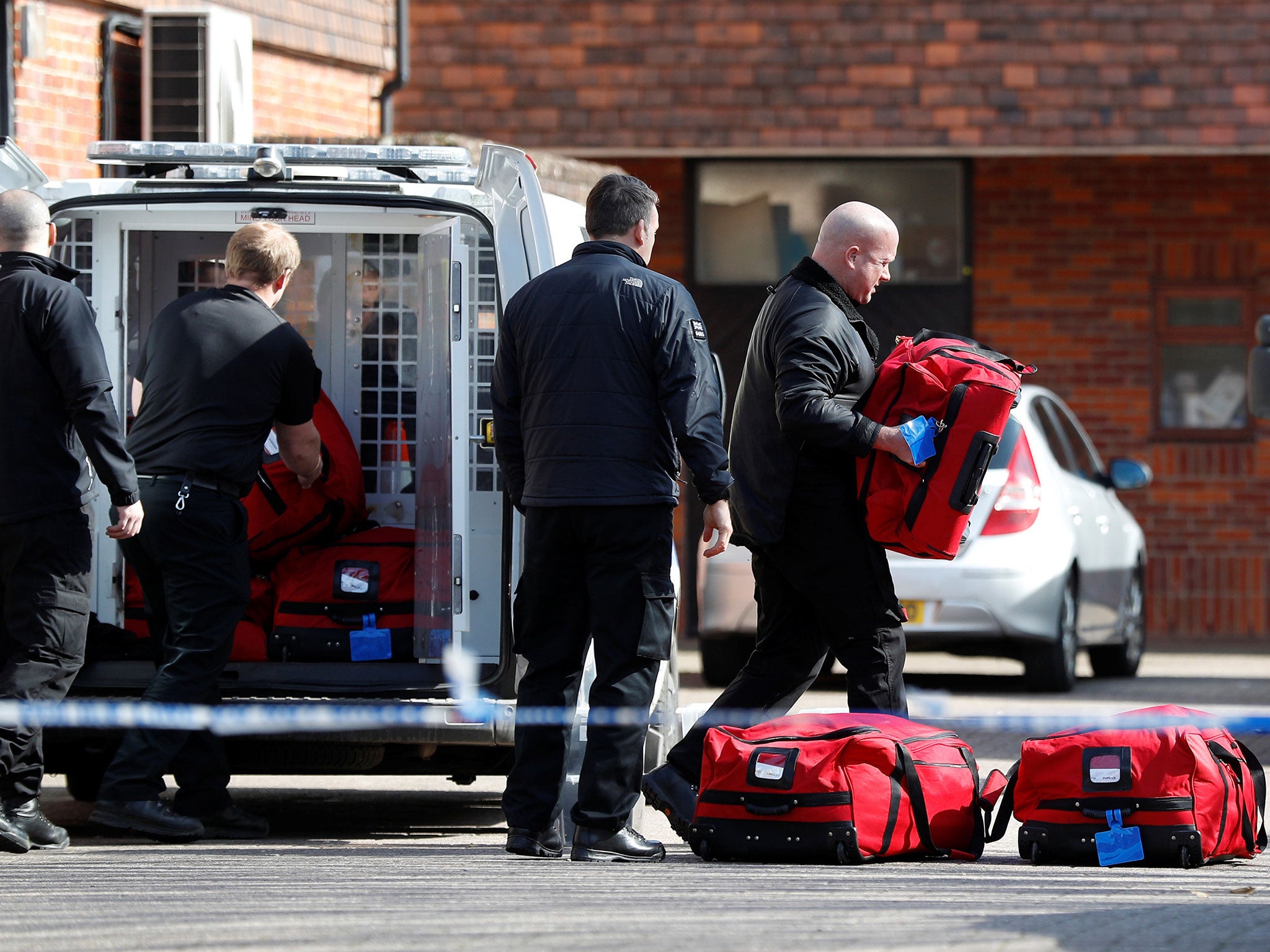Amesbury novichok incident: Chemical weapons inspectors to gather new samples for testing
Organisation for the Prohibition of Chemical Weapons (OPCW) to visit sites including Charlie Rowley's home

International chemical weapons inspectors are returning to Wiltshire to gather new samples for testing as the investigation into the poisoning of Dawn Sturgess and Charlie Rowley continues.
Police believe the pair were accidentally exposed to the same novichok used against former Russian double agent Sergei Skripal in March, after Mr Rowley picked up a glass bottle containing the nerve agent in the belief it was perfume.
The Organisation for the Prohibition of Chemical Weapons (OPCW) verified analysis that identified the substance at the Porton Down defence laboratory following the Salisbury attack.
Inspectors confirmed that Mr Skripal, his daughter Yulia and police officer Nick Bailey had been exposed to novichok, which was also found on Mr Skripal’s front door, saying the chemical used was of “high purity”.
The British government invited the OPCW to assist the investigation into the Amesbury incident early last month, when The Independent understands they were given access to the bottle of novichok found at Mr Rowley’s home and samples from the victims.
The Foreign Office said experts had been invited back to collect further samples as part of work to independently confirm the identity of the nerve agent that killed Ms Sturgess.
“During their visit, the OPCW’s experts will collect more samples to inform their work following their visit in July,” a spokesperson added.
“The samples will be analysed at highly reputable international laboratories designated by the OPCW.”

Investigators are expected to arrive in Britain over the coming week, when The Independent understands they will take “environmental samples” and visit Mr Rowley’s home for the first time.
The security services have not absolutely ruled out the possibility that another bottle of novichok may have been dumped by the culprits who targeted Mr Skripal, but have not received any intelligence indicating that one exists.
A spokesperson for the OPCW said the new samples will be sent to two designated laboratories before a report is compiled.
“The OPCW team works independently and is not involved in the national investigation by the UK authorities,” the organisation added, following the spread of numerous conspiracy theories.
“No state party is involved in the technical work carried out by the technical secretariat.”
After the OPCW confirmed that novichok was used against the Skripals, the Russian government wrongly claimed that a designated laboratory in Switzerland found that the BZ agent was used instead.
Foreign minister Sergei Lavrov was among officials using the alleged finding to transfer blame to the UK and its Nato allies, before the OPCW director-general confirmed BZ and blank samples were not from Salisbury and had been sent as controls to check the quality of testing.
During a visit to Washington on Tuesday, Gavin Williamson said an “increasingly aggressive Russia” was “using every weapon at its disposal to advance its interests”.
“Russia’s use of covert operations, cyber warfare, political subversion and increased military posturing is part of a wider pattern of malign behaviour,” the defence secretary said in a speech to the Atlantic Council think tank.
“Who would have thought a year ago that we would have seen, in the UK, in a sleepy cathedral town in the middle of the English countryside, the use of chemical weapons – the first use of chemical weapons in Europe since the Second World War? It demonstrates the fact that dangers are diversifying.”
The Kremlin has denied any involvement in either the Salisbury or Amesbury incidents and accused Britain and other countries of violating the Chemical Weapons Convention.
Police believe they have identified the suspected perpetrators of the original attack on Mr Skripal, who are Russian and left Britain under false identities.
Sources told The Independent the potential culprits had been narrowed down to between two and four people, including a woman, who may be linked to the Russian GRU intelligence service – where Mr Skripal worked before turning for MI6.
The government is reportedly preparing to submit an extradition request to Moscow for two of the suspects.
The Guardian said the Crown Prosecution Service (CPS) is ready to formally file the request, which is almost certain to be immediately rejected by Russian authorities amid a bitter diplomatic row.
Counterterror police are continuing investigations into both the Salisbury and Amesbury incidents, attempting to piece together how novichok was smuggled into the UK and deployed.
Two industrial rubbish bins where Mr Rowley believes he may have found the nerve agent were removed from Salisbury for testing last week and police are continuing to talk to the 45-year-old over his recollection of the incident.
Relatives and friends of Ms Sturgess attended a private funeral last week, after describing the mother-of-three as a “gentle soul who was generous to a fault”.
She died in hospital on 8 July, little over a week after collapsing at Mr Rowley’s home in Amesbury.
Mr Rowley recalled presenting the “perfume” to his partner as a gift before she sprayed the “oily” substance directly onto her wrists, while he got some on his hands before quickly washing it off.
Ms Sturgess fell ill within minutes on the morning of 30 June and Mr Rowley was taken to hospital hours later, with a major incident declared after tests showed they had been exposed to a nerve agent.
An inquest into Ms Sturgess’s death has been adjourned to January, as a police murder investigation continues alongside searches and decontamination work in Salisbury and Amesbury.
Public Health England’s advice states that the wider risk to the public remains low but urges local residents not to pick up any unknown items “such as syringes, needles, cosmetics or similar objects made of materials such as metal, plastic or glass”.
Bookmark popover
Removed from bookmarks